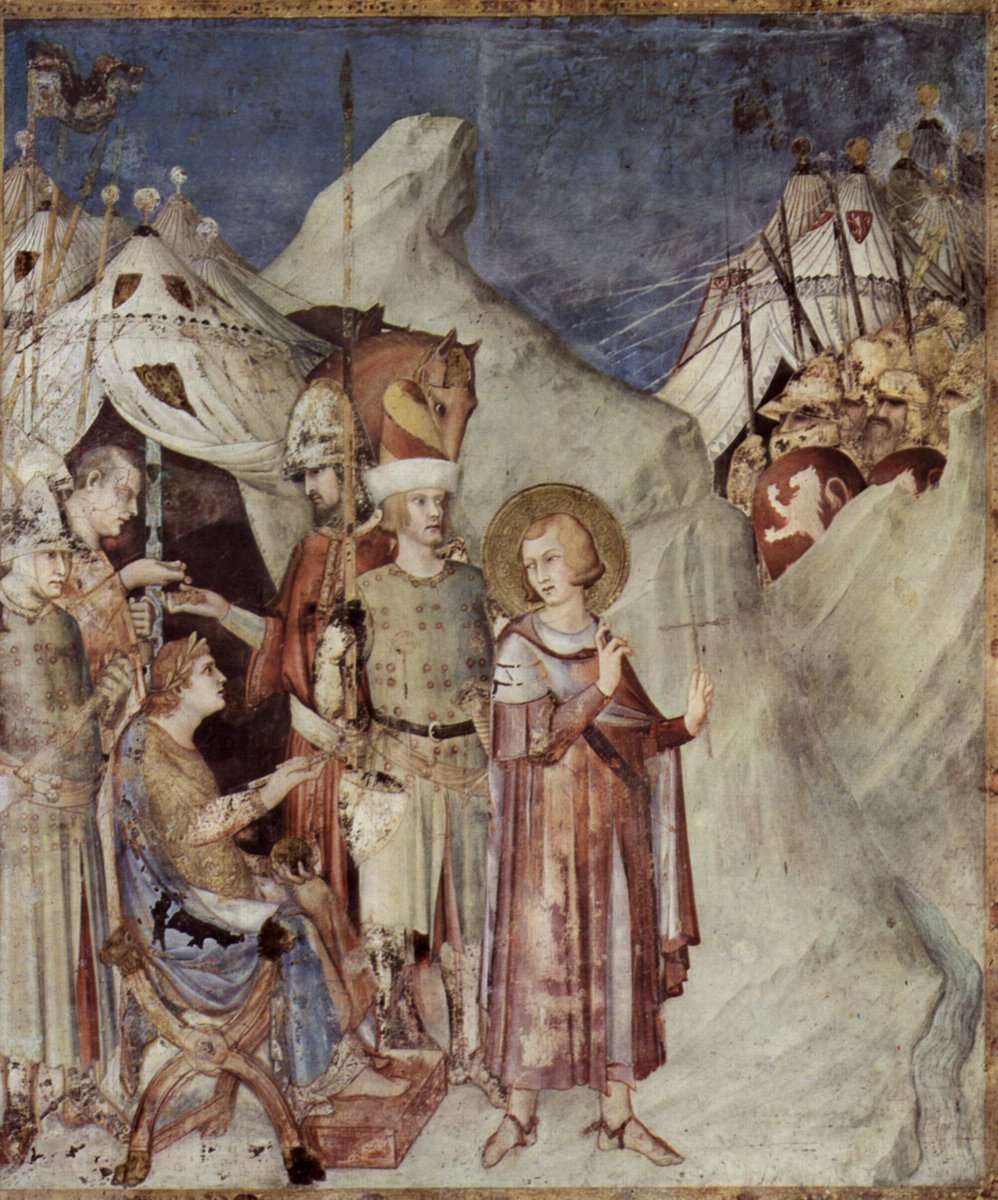Today’s Feast provides us with a good opportunity to consider *what I might do* in response to the problems in the Church around the clerical abuse scandal. As I’ve said elsewhere, what’s needed is intelligent, practical analysis and solutions. But what’s also needed is holiness.
St Martin of Tours was one of the greatest saints in the history of the Church — and in some important respects, a reformer. Though his time was the early Church, not one of later decadence, the way he responded to the call of the Gospel leaves a timeless blueprint.
St Martin was a Roman soldier, a member of what had become the most important institution in the Empire. And if his later success as a bishop is any indication, he was probably recognized as figure of great promise for the Empire, even meeting with the Emperor Julian himself.
But after his encounter with the beggar, to whom he gave half his cloak, and the subsequent dream he had of Christ revealing that it was he who had received that cloak – Martin knew that it was imperative he be baptized immediately, and commit himself fully to the Christian life.
Having been baptized, his personal priorities underwent a dramatic shift. Soon enough, he discerned that he could no longer serve as a soldier for the secular imperium: to be a Christian in integrity, and Martin was a man of integrity, was to commit to that life completely.
He now had to live completely for the Kingdom of God and its rule. Martin confronted the Emperor Julian (the Apostate) with this truth, disappointing him. Martin declared he must leave the Roman military. Tantamount to desertion, for this he was jailed, execution imminent.
Martin insisted they could instead put him at the front of a battle, where his death would be assured. Providentially, the enemy army surrendered without a fight. Released from his duty, Martin left that worldly imperium never to return. Instead he sought ordination as a priest.
He sought out St Hilary of Poitiers and lived as a hermit, no doubt imitating the lives of saints whose examples were piously well known. But soon after, he realized that living the Christian life to the full needed more than just personal commitment. It needed community.
With the permission of his bishop, Martin would then found one of the first monasteries in Europe, in France at Tours, Ligugé. Not long after, he would found another, Marmoutier. That legacy of Christians pursuing holiness together under a common rule would change Europe forever.
The great works of apostolic charity Martin became known for as bishop flowed, as from their source, from the communities he founded dedicated to the work of holiness. Building the Kingdom was an enterprise that began and was completed in the ecclesial work of sanctification.
Surely, much work today is needed to bring reform to the Church — work of accountability, practical organization, institutional self-examination, even structural change. But without the accompanying work of holiness and sanctification, such reform will ultimately fail.
It sounds like a platitude, but reform in the Church must always begin in the personal reform of the lives of Christians. God is the only agent that can achieve the institutional reform needed; but we cannot be his instruments (finally, at least) if we are not holy as he is holy.
At worst — and this is always the most damaging consequence of clerics who've failed in their duty, if not inflicted greater evil themselves — the Church herself risks losing the very meaning of her mission, no longer able to offer holiness as Christ’s chosen instrument.
Because holiness is not just a helpful ancillary, making organizational ends run more smoothly. It is the very reason and goal for which the Church exists at all: to bring men and women to know the true God and share now and finally forever in his life of joy and peace.
Martin was a great institutional builder and organizer. But he was first a priest. To be a priest is to be consecrated to God, to be holy. As a good Roman, he knew that classical axiom: one cannot give what one does not first have. Martin gave holiness because he first found it.
To describe the clerical abuse scandal as simply as possible, it was the result of the Church making worldly ends more important than spiritual ones: having good builders and organizers (or just a great quantity of priests) became more important than having holy priests.

 Read on Twitter
Read on Twitter


